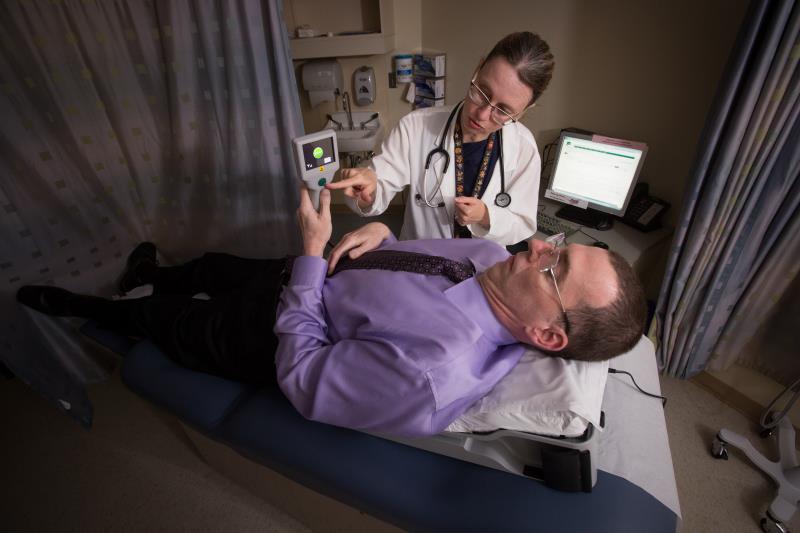“We have an epidemic of heart disease, more specifically heart failure. And we can’t keep doing big-box medicine,” says Dr. Heather Ross, Director of the Ted Rogers and Family Centre of Excellence in Heart Function and a cardiologist at the Peter Munk Cardiac Centre (PMCC).
Innovations in heart failure research are spearheaded at the University Health Network (UHN) site of the Ted Rogers Centre for Heart Research, which is an integral program of the PMCC. Here, Dr. Ross and her team are using smartphone apps, digital platforms and even a Bluetooth-enabled monitor implanted into a patient’s lungs to help manage symptoms and triggers of heart failure, educate patients and limit hospital trips.
“Virtual care has been a term that has been thrown around, but I think this is virtual care on steroids,” says Dr. Ross. “What we have is a set of virtual tools to enhance self-care and to enlist patients in their own care, because patients are the largest work force in health care.”
The main objective is to create an easy-to-use, patient self-care and treatment program that is both mobile and electronically based. Patients don’t need to go to the clinic as often, and they can track symptoms and progress at the touch of a button, showing them how lifestyle choices can have an effect on heart health.
“If you think about obesity, diabetes, physical inactivity – all things that are risk factors for heart failure – if we can engage patients, we should be able to dramatically reduce the incidence or prevalence of heart disease, and therefore, heart failure,” explains Dr. Ross.
And while some of the inner workings of these systems are staggeringly complex, the equipment the patients use at home is fairly simple.
Patients don’t need to come into a clinic for a weigh-in. They can simply stand on a scale hooked up to an app on their smartphone, and the details are sent digitally to a team of healthcare providers. At least this is the thinking behind Medly, a mobile application system designed at UHN that consists of a blood pressure cuff and scale that are digitally linked to a Bluetooth-enabled device.
Meredith Linghorne is a Nurse Practitioner-Adult at the PMCC, and she is on the receiving end of Medly’s patient data.
She says that patients are asked to monitor their blood pressure, heart rate, weight and simple symptoms on a daily basis – something that would have been impossible before without daily trips to a clinic or a hospital.
“With this information, I know when they’re getting into trouble. And this particular app is designed so they will get immediate feedback from us after taking their measurements, or the app tells them to contact us to discuss the problem.”
For the clinicians, this advanced technology marries the vital components of self-management and education in cardiac health care.
Dr. Jane MacIver, nursing professor in cardiovascular research for the Ted Rogers Centre for Heart Research, says it’s about the teachable moments this type of technology provides. A large part of cardiac health is providing patients with information about how lifestyle choices affect one’s heart health.
Her work is focused around CardioMEMS, a system designed in the U.S. and only used on two patients in Canada so far, as approval is pending. CardioMems is a heart monitor that is inserted into a person’s lung artery and gives real-time blood pressure readings back to the clinician, allowing for more immediate lifestyle or medication adjustments.
For instance, if a person has been neglecting a healthy diet and reaching for sodium-rich snacks, CardioMEMS will pick up on the effects. “For the patient, it allows them to see how the changes they make in their life can affect their reading,” says Dr. MacIver.

